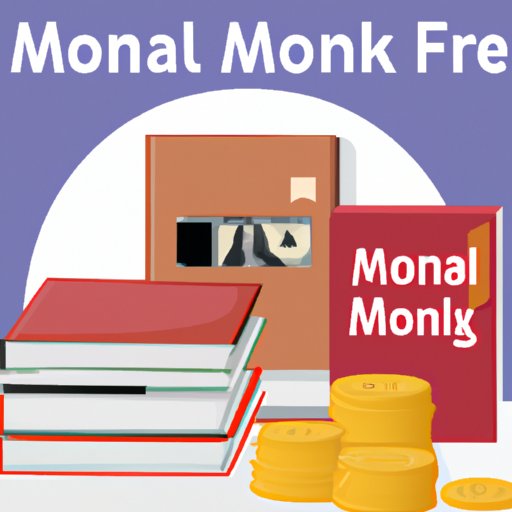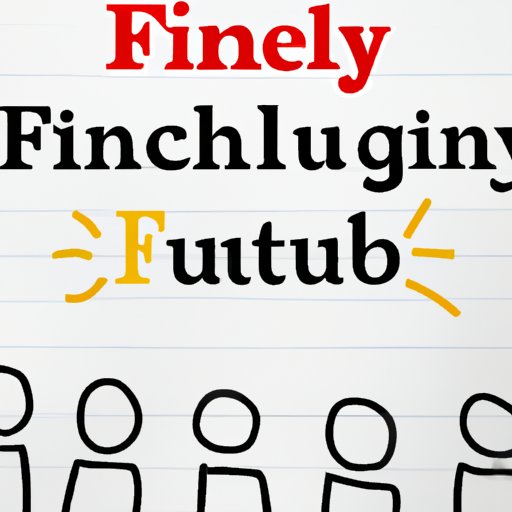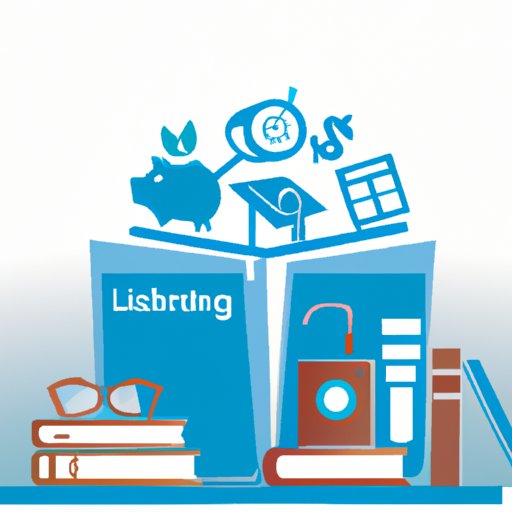Introduction
Financial literacy is the ability to understand and use various financial skills, including personal financial management, budgeting, and investing. It’s an important skill for everyone to have, as it can help you make sound financial decisions, save money, and achieve your financial goals. Unfortunately, many people lack financial literacy, which can lead to poor money management and even debt.
Attend Financial Literacy Workshops and Seminars
Attending financial literacy workshops and seminars is a great way to gain knowledge and develop your financial literacy skills. These events are usually free or low-cost and provide valuable information on topics like budgeting, saving, investing, and retirement planning. Additionally, they often feature guest speakers who are experts in the field of finance and can provide valuable insight.
Benefits of Attending Workshops and Seminars
Attending financial literacy workshops and seminars can be beneficial in several ways. First, it gives you the opportunity to learn from industry professionals who can provide valuable advice and tips. Second, it helps you build a network of like-minded individuals who can share their experiences and insights. Finally, it provides a hands-on learning environment where you can ask questions and get feedback on your own financial situation.
Where to Find Workshops and Seminars
You can find financial literacy workshops and seminars in your local area or online. Most cities and towns have organizations that host these kinds of events. You can also search for events on event-listing websites like Eventbrite or Meetup. Additionally, some banks and credit unions offer financial literacy seminars or classes.

Read Books on Personal Finance and Money Management
Reading books is another great way to become more financially literate. There are a variety of books available that cover topics such as budgeting, saving, investing, debt management, and more. Reading books can provide you with valuable information and perspective, as well as give you the opportunity to learn from the experiences of others.
Benefits of Reading Books
Reading books on personal finance and money management can be beneficial in several ways. First, it gives you access to detailed information on financial topics. Second, it allows you to learn from the experiences of others. Third, it helps you identify areas where you need to improve your own financial literacy skills. Finally, it can help you develop strategies and techniques to help you reach your financial goals.
Recommended Books
Here are a few recommended books on personal finance and money management:
- The Total Money Makeover by Dave Ramsey
- The Simple Path to Wealth by JL Collins
- I Will Teach You To Be Rich by Ramit Sethi
- The Millionaire Next Door by Thomas Stanley and William Danko
- Rich Dad Poor Dad by Robert Kiyosaki
Follow Personal Finance Blogs and Websites
Following personal finance blogs and websites is another great way to become more financially literate. There are a variety of websites and blogs that provide valuable information on topics such as budgeting, saving, investing, debt management, and more. Additionally, these websites often provide up-to-date news and advice on financial topics.
Benefits of Following Blogs and Websites
Following personal finance blogs and websites can be beneficial in several ways. First, it’s a great way to stay up to date on the latest news and trends in the world of finance. Second, it provides you with access to valuable information and advice from experts in the field. Third, it allows you to connect with other like-minded individuals who can provide support and encouragement. Finally, it gives you the opportunity to ask questions and get feedback from experienced professionals.
Recommended Blogs and Websites
Here are a few recommended personal finance blogs and websites:
- Money Saving Mom
- Investopedia
- The Penny Hoarder
- Mr. Money Mustache
- The Balance

Join a Financial Literacy Group or Community
Joining a financial literacy group or community is another great way to become more financially literate. These groups and communities provide a safe and supportive environment where you can connect with like-minded individuals and learn from each other’s experiences. Additionally, they often provide resources, such as books, articles, videos, and webinars, that can help you improve your financial literacy skills.
Benefits of Joining a Group or Community
Joining a financial literacy group or community can be beneficial in several ways. First, it gives you access to valuable resources that can help you improve your financial literacy skills. Second, it provides you with a support system of like-minded individuals who can provide advice and motivation. Third, it allows you to connect with experts in the field who can provide valuable insight and guidance. Finally, it gives you the opportunity to ask questions and get feedback on your own financial situation.
How to Find and Join Groups or Communities
You can find financial literacy groups and communities in your local area or online. Many cities and towns have organizations that host these kinds of events. You can also search for groups and communities on social media sites like Facebook and Twitter. Additionally, some banks and credit unions offer financial literacy programs or classes.
Utilize Budgeting and Finance Tracking Apps
Utilizing budgeting and finance tracking apps is another great way to become more financially literate. These apps can help you track your spending, set and monitor financial goals, and receive personalized recommendations. Additionally, many of these apps provide educational resources that can help you improve your financial literacy skills.
Benefits of Using Apps
Using budgeting and finance tracking apps can be beneficial in several ways. First, it helps you gain insight into your spending habits and identify areas where you can save money. Second, it allows you to easily set and track financial goals. Third, it provides personalized recommendations and advice based on your financial situation. Finally, it gives you access to educational resources that can help you improve your financial literacy skills.
Recommended Apps
Here are a few recommended budgeting and finance tracking apps:
- Mint
- YNAB (You Need A Budget)
- Personal Capital
- PocketGuard
- Acorns

Talk to a Financial Planner or Advisor
Talking to a financial planner or advisor is another great way to become more financially literate. A financial planner or advisor can provide valuable advice and assistance in developing a plan to reach your financial goals. Additionally, they can provide insight into financial topics and help you make sound financial decisions.
Benefits of Talking to a Financial Planner or Advisor
Talking to a financial planner or advisor can be beneficial in several ways. First, it gives you access to expert advice and guidance. Second, it helps you develop a customized plan to reach your financial goals. Third, it provides you with insight into financial topics and helps you make sound decisions. Finally, it allows you to ask questions and get feedback on your own financial situation.
How to Find a Financial Planner or Advisor
You can find financial planners and advisors in your local area or online. You can search for them on websites like Fidelity, Vanguard, or Edward Jones. Additionally, some banks and credit unions offer financial planning services. You can also find financial planners and advisors through professional associations and organizations such as the Financial Planning Association or the National Association of Personal Financial Advisors.
Set Short- and Long-Term Financial Goals
Setting short- and long-term financial goals is another great way to become more financially literate. Setting goals can help you stay motivated and focused on achieving your financial objectives. Additionally, it can provide you with a sense of accomplishment when you reach your goals.
Benefits of Setting Goals
Setting short- and long-term financial goals can be beneficial in several ways. First, it helps you identify areas where you need to improve your financial literacy skills. Second, it provides you with a roadmap for reaching your financial goals. Third, it keeps you motivated and focused on achieving your objectives. Finally, it gives you a sense of accomplishment when you reach your goals.
How to Set Goals
Setting financial goals is a simple process. First, you need to decide what you want to accomplish. This could include things like saving for retirement, paying off debt, or building an emergency fund. Next, you need to set a timeline for reaching your goals. Finally, you need to create a plan for reaching your goals. This should include steps such as budgeting, saving, and investing.
Conclusion
Becoming more financially literate can help you make better money decisions and reach your financial goals. There are a variety of ways to become more financially literate, including attending workshops and seminars, reading books, following blogs and websites, joining a group or community, using budgeting apps, talking to a financial planner or advisor, and setting goals. By taking advantage of these tips, you can become a more financially literate individual.
Summary of Tips for Becoming More Financially Literate
- Attend financial literacy workshops and seminars
- Read books on personal finance and money management
- Follow personal finance blogs and websites
- Join a financial literacy group or community
- Utilize budgeting and finance tracking apps
- Talk to a financial planner or advisor
- Set short- and long-term financial goals
Final Thoughts
Financial literacy is an important skill for everyone to have. By taking advantage of the tips outlined in this article, you can become a more financially literate individual and make better money decisions. With a little effort and dedication, you can take control of your finances and achieve your financial goals.
(Note: Is this article not meeting your expectations? Do you have knowledge or insights to share? Unlock new opportunities and expand your reach by joining our authors team. Click Registration to join us and share your expertise with our readers.)
